 The Next Russian Revolution
The Next Russian Revolution
I read this book in preparation for a class I will take in August at the University of Arizona. Reading a course’s books before the lectures gives valuable context.
I also hoped the book would answer questions I’ve had for years about Russia. Is it really a threat to the U.S., Europe, and the world, or is its belligerence just bluster, mainly for domestic consumption? Belligerence is generally a desperate attempt at compensation for painful deficiencies, but a bully can hurt you, so the two possibilities are not exclusive. I wanted to know what Russia is about today, and its recent history would seem to offer answers.
I also have had questions about the fall of the Soviet Union. I never understood that. Gorbachev had everything: all the power, all the jobs, all the money, all the guns. What levers of power was he lacking? Why did he let the edifice collapse?
I also had questions about Putin. Who is that guy and what makes him tick? Unfortunately, this book doesn’t go that far. The title says this history extends into the twenty-first century, but after Yeltsin there is hardly anything, so that’s false marketing. As marketing tends to be.
There were many surprises along this historical journey, with confirmations of what I thought I already knew. My understanding of the Bolshevik revolution was fairly well-informed. Lenin and his band of merry men didn’t know the first thing about governance and were more surprised than anyone when they found themselves suddenly in power. Their “reign of terror” was a panicked default reaction.
It was interesting to review the economic and social details of the Soviet Union during World War II and the Stalin years. Stalin wasn’t very bright and mostly reacted to events. The establishment of the Soviet Union with Eastern Europe more or less fell into his lap. His reign of terror, awful as it was, hardly rose to the level of strategy. It was reactive and paranoid. He discovered, as Lenin had, that the vast country of Russia, now including a dozen satellite countries, was ungovernable.
No matter what decrees came down from all-powerful Moscow, ordinary people used passive aggression to ignore the leadership and look out for themselves. Not even the vast network of gulags, or concentration camps, helped Stalin get his way, except in providing plenty of slaves for the mines and forests of the north.
That theme, the basic ungovernability of the Soviet Union, continued through the Brezhnev years. At least the ordinary people finally had adequate food and shelter in post-war prosperity, and the Soviet military machine was developed.
Gorbachev is still an enigma to me. The author paints him as “confused” in his goals and his thinking, to explain his radical reversal of central planning and control, but the book doesn’t present evidence for that and I don’t buy it. I remember hearing Gorby give a long speech (on TV) and being very impressed by his clear thinking and eloquence. So whatever drove him is still a mystery to me.
This book is long on verifiable historical facts (and there are a hundred pages of references), such as economic outputs in each sector for each five-year plan and which leaders held which government posts and took which decisions, but there is really no attempt to understand the motivation or psychology of the players. I assume that would not be considered “scientific” history. I don’t want wild speculation – anybody can do that. But in the historical record, letters, diaries, speeches, and so on, there surely are clues about a person’s state of mind. I remember reading Richard Nixon’s post-presidential memoir and discovering with blinding clarity that he had a serious personality disorder. If I can do it, others can.
Putin is hardly covered in the book. I already knew he was a long-time thug from the KGB-FSB and a clever operative under Yeltsin. But I still wonder if his motivation today is mainly personal aggrandizement – to become Tsar Nicholas, or whether he has realized, as so many have before him, that the country is ungovernable and that the best he can hope for is to keep order (with an iron fist), and – why not? – skim a little cream off the top.
Ideology doesn’t play much role in this book. There is little discussion of what drove Lenin, for example. Was he simply offended by the cruelty and injustice under Tsar Nicholas, or did he see something in Karl Marx that inspired him in a humanistic way? His behavior didn’t reveal such motivation, but again, the book does not delve into psychology.
The author does tend to be disparaging of authoritarianism and kindly towards acts of “reform” in the direction of individual freedom. He’ll say for example (not a real quote) ‘Unfortunately, despite his wish to loosen the reins on agriculture, Stalin had no qualms about enlarging the prison camps.” Well, why was that ‘unfortunate’? Objectively speaking, the gulag was exactly the right thing, for Stalin to maintain control. He had few options and the alternative was a Yelstsin-like breakup. Perhaps subtle biases are unavoidable for a Western writer.
In the end, I came away from this book believing that the Soviet Union never was a union, was always ungovernable, as Russia today still is. You can’t put everybody in chains or the factories and farms won’t work, but at the same time, you can’t force workers and farmers to be enthusiastic about submitting their wills and their lives to arbitrary dictators. Passive resistance is an awesome force. I’ve seen it in the workplace in my career. Human motivation is not easily controllable.
The most effective tool of control Soviet and Russian leaders ever wielded was not terror, but propaganda. I think that is still true today. The people had been oppressed since the era of the Tsars and did whatever they could to stay fed and warm, regardless of what the government told them to think and believe.
Only now, in the last one or two decades, with the rise of global communications, do people have a glimpse at alternative ways of living and I think that will ultimately be the downfall for all tyrannical governments. The Russian revolution hasn’t even started yet.
Service, Robert (1997/2009). A History of Modern Russia From Tsarism to the Twenty-first Century. Cambridge, MA: Harvard University Press (736pp).

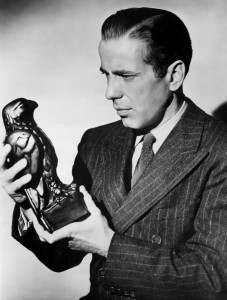 I finished drafting my android series of novels. The first is being shopped around by an agent (fingers crossed), and the last one needs another edit for voice. But they exist.
I finished drafting my android series of novels. The first is being shopped around by an agent (fingers crossed), and the last one needs another edit for voice. But they exist. This morning I searched the news in vain for cogent political analysis. I find only reports of what happened. Donald Trump won Indiana and is indeed the presumptive Republican nominee now. Cruz is out, and Kasich too, according to early reports. I thought Kasich would hang in, on the chance that if the Republican convention dissolved into internecine conflict he would be the last rational man standing. Now it looks like there will have to be a third-party candidate.
This morning I searched the news in vain for cogent political analysis. I find only reports of what happened. Donald Trump won Indiana and is indeed the presumptive Republican nominee now. Cruz is out, and Kasich too, according to early reports. I thought Kasich would hang in, on the chance that if the Republican convention dissolved into internecine conflict he would be the last rational man standing. Now it looks like there will have to be a third-party candidate. In the general election, Clinton will slaughter Trump. We can only hope the effect trickles down-ticket. Sanders could also beat him. The third-party candidate will be someone splintering from the Republicans, because the party structure will be needed to deal with the formidable challenges of money and message. Some unknown independent selected by the moneyed class will never rise to the occasion. Ideally, it will be somebody properly socialized; an anti-Trump who could pull the party and even the country back together. That would be the candidate’s mission, not winning in 2016.
In the general election, Clinton will slaughter Trump. We can only hope the effect trickles down-ticket. Sanders could also beat him. The third-party candidate will be someone splintering from the Republicans, because the party structure will be needed to deal with the formidable challenges of money and message. Some unknown independent selected by the moneyed class will never rise to the occasion. Ideally, it will be somebody properly socialized; an anti-Trump who could pull the party and even the country back together. That would be the candidate’s mission, not winning in 2016.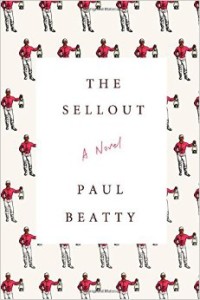
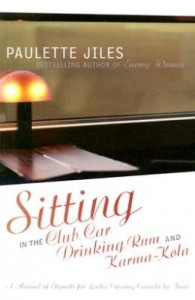 This little novella is a wonderful train story with a lot of claustrophobic atmosphere and terrific language. I will shelve it with my small collection of “prose poetry,” along with books like Duras’s The Lover, Winterson’s Art and Lies, and Ondaatje’s Coming Through Slaughter.
This little novella is a wonderful train story with a lot of claustrophobic atmosphere and terrific language. I will shelve it with my small collection of “prose poetry,” along with books like Duras’s The Lover, Winterson’s Art and Lies, and Ondaatje’s Coming Through Slaughter.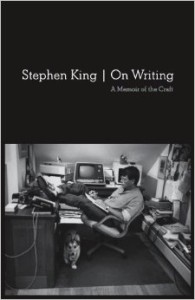
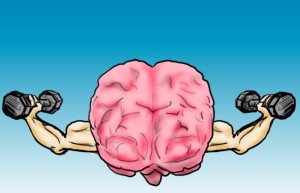 I confess, I have recently fallen off the wagon of fiction. I published a brief (1000 word) nonfiction article on the mysteries of visual perception to
I confess, I have recently fallen off the wagon of fiction. I published a brief (1000 word) nonfiction article on the mysteries of visual perception to 
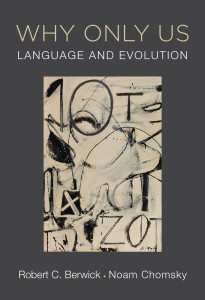 Noam Chomsky, giant of contemporary thought and inventor of transformational grammar and computational linguistics, has a new book out and it’s mercifully on linguistics, not politics.
Noam Chomsky, giant of contemporary thought and inventor of transformational grammar and computational linguistics, has a new book out and it’s mercifully on linguistics, not politics.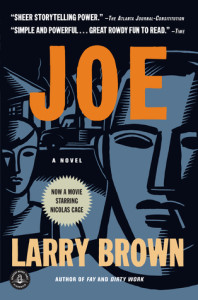 When does a sequence of scenes not make a story? A good story is driven by causality: incident A causes incident B, either by the laws of physics, or by plausible character actions.
When does a sequence of scenes not make a story? A good story is driven by causality: incident A causes incident B, either by the laws of physics, or by plausible character actions.